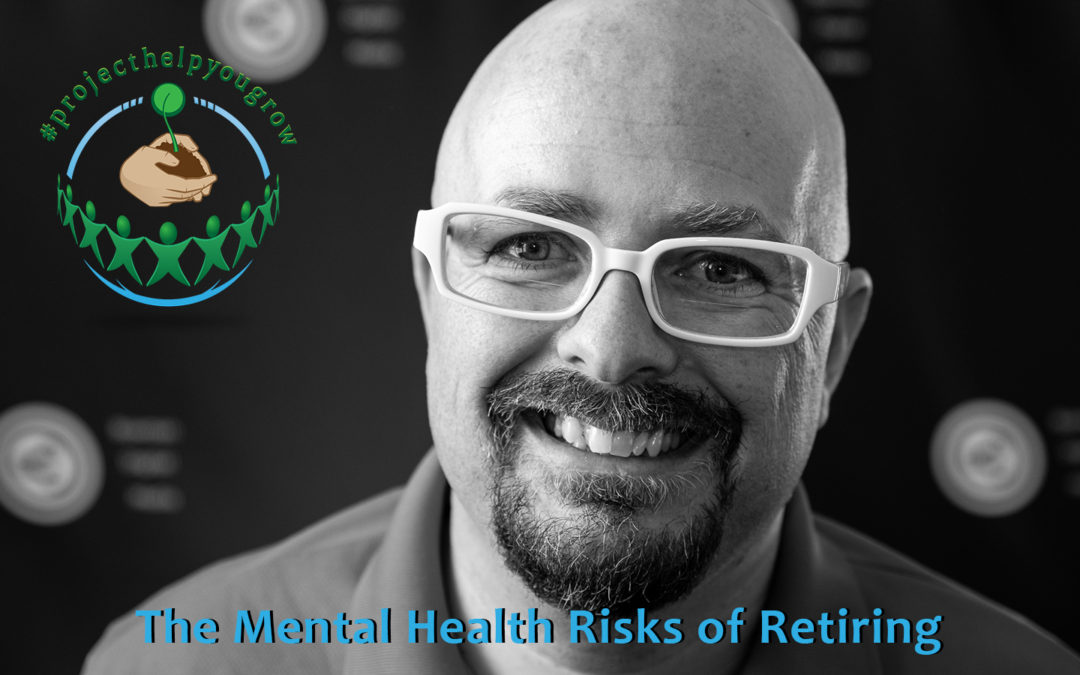Looking forward to retirement? Many people count down the years until they can be free from the daily grind of working, however not everyone feels that way. For some, the loss of purpose can be devistating. So what is the potential mental health risk of retiring?
A study on 10,308 men and women aged 35-55 years showed a small difference in the baseline functioning of active workers and retirees. The mental functioning improved for those who retired but declined for those who continued to work. Universally it is understood that there is a depreciation of human resources and at a certain point most humans are better off if they leave the workforce. This is one reason governments around the world set retirement guidelines based on age.
There is a popular story of Late Pamela Hixon of Leipsic in Ohio. She worked with a hospice agency and the story has it that she looked forward to her retirement. But Pamela fell into depression and anxiety just after her retirement. She reached out and sought help from counselors and her pastor, which is society’s recommendation for depression. Pamela took her own life after 6 months. This tragic story put a stain on the several research works that prove retired people are happy.
According to Brent Forester, president of the American Association of Geriatric Psychiatry, “Getting depressed is not a normal part of aging.” He tried to explain some of the reasons why old people fall into risk of depression. One of those factors is the loss and, in this case, the loss of one’s job. When people take up a profession for a long time, it almost becomes part of their identity. Tony Hixon, an Ohio-based wealth manager also relayed the experience and pointed out how retired people can lose their sense of purpose, identity, significance, and meaning.
Isolation and Loneliness
Most people center their lives around the workplace environment. They make workplace friends, stick to routines, develop new interests and make it a habit. During retirement, they leave workspaces to remain at home – which may become a totally different environment. Some people move to new locations with their families.
A lot of people at the age of retirement have only distant family members and friends who are far away. This social isolation also increases the risk of depression. With a deteriorated social network, no sense of belonging, and an unstructured routine, retired people can adopt unhealthy habits. These habits are more sensitive to that age range. Habits such as drinking, smoking, drug use, unhealthy food habits.
For people who do not acknowledge or have a sense of achievement, especially if they feel they have left no legacy, the thoughts and retrospect can be overwhelming. The effects are compounding because this age group have so much time in their hands, but with feeling left out, there is only so little they can be motivated to do.
Career foresight
Most people envision what the trajectory of their career looks like and work towards it. They become focused on the journey to retirement that they never consider what their post-retirement life will be like. Sometimes, they can lose sight of the nuanced benefits of working. One may think it is logical to look past the workload, annoying colleagues, forced routines and schedule, and work towards retiring. However, retirement is not a finish line and when there is nothing done to plan towards that life, most people may end up feeling unaccomplished.
Hence, thinking about the trajectory of one’s career must include their life outside the workplace – their life after retirement.
Retirement should be considered as part of one’s career journey.
The Angel investor and billionaire Naval Ravikant tries to explain retirement to be three things.
- Finally resting and letting your income work for you.
- Doing something that is fun, something you love so much that you do not consider it as work.
There are multiple ways to retire. According to Naval, “It is when you stop sacrificing today for an imaginary tomorrow.” If people learned to savor their journey while as workers, retirement will be more of a transition than a destination.
Transitioning
If you consider retirement as a transition or as part of your career journey, it will be helpful in determining how it’s spent. Activities can include hobbies, volunteering, family time, sports, teaching, even running a business passively. Once you determine what it is that gives you joy, you can start working towards such, learn, build, and establish. Who knows, if done rightly, you can almost always choose to retire before time.
It is important to take the transitioning process easy and steady. You can talk to a therapist; you can start by opting in for part-time or remote work schedules.
Socializing and finding help
There are other factors that may force one to retire earlier than planned. Retiring involuntarily because of sickness, job loss, or other unexpected events can make one feel unfulfilled. It increases the chance of depression and other accompanying mental health problems. For adults, depression can encroach into other issues such as memory problems, feeling numb, issues with decision making and physical complaints.
Faced with such a situation? Or know someone facing a similar situation? You can always find a way to help. Integrating them back into society can help.
If they are depressed, encourage them to seek counseling, therapy and advice from medical professionals. People who are depressed can also feel a lack of motivation so you have to be patient with them. Finding a job or volunteer work for them can help too. At ProjectHelpYouGrow: we connect job seekers to jobs, so feel free to use our resource to assist with these efforts.
